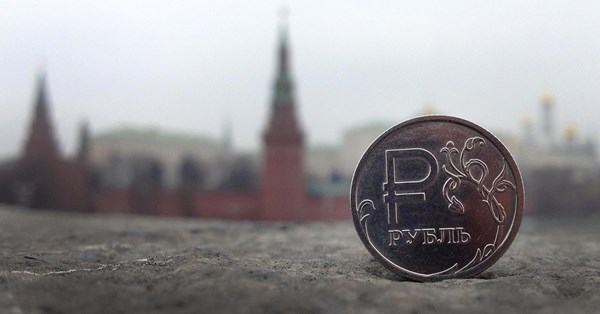Russian government bonds depreciate to a 5-year record low
Neither the stabilization of developing markets nor the attempts to strengthen the ruble have been able to halt the collapse of Russian government debt on the market, finanz.ru reports.
At the end of trading last Thursday, the Russian Government Bond Index (RGBI) fell another 0.3 points, reaching a low since February 2017 – 134.59 points.
Federal Loan Bonds (OFZs) depreciated on the Moscow Exchange for 12 consecutive days, something which the market has not seen in more than 5 years. Only in March 2013 did the price drop in more consecutive trading sessions – 13.
In the 4 months preceding the United States’ latest bout of sanctions, which brought the aluminium producer Rusal to the verge of default and threatened to ban dollar operations with state banks, long-term loans became more than a percentage point more expensive for the Ministry of Finance: the yield of long-term bonds (with repayment in 2027 or later) exceeded 8.5% on Thursday.
10 and 15 year OFZs have depreciated by 10% since the start of the year, the price of the 9 year OFZ 26207 dropped to 98.6% of the nominal, setting a low since November 2016.
It appears that non-residents are continuing to leave the market, observed Reiffeisen Bank analyst Denis Poryvay: for the major foreign investors, the passing of the bill to expand sanctions and ban the purchase of Russian sovereign debt has become the baseline scenario.
Between April and June, non-residents already disposed of a record 370 billion rubles worth of government bonds, bringing their proportion down to a one and a half year low. Russian banks have taken part in the sell-off, withdrawing 116 billion rubles from OFZs.
The Russian population’s pension savings have been used to halt the market collapse: Non-government pension funds bought 250 billion rubles of government bonds in the second quarter, and another 40 billion was purchased by insurance companies.
For the Russian Finance Ministry, the possibility of borrowing on the market is now uncertain: “the primary market is in a semi-closed condition,” observes a survey by Rosbank.
The failure at a recent auction confirms this: the Finance Ministry tried to borrow only 10 billion rubles, and offered one issuance instead of the traditional two, but was only able to borrow 5.8 billion rubles.
“Local investors on the current levels are not prepared to purchase larger amounts,” Poryvay says.
The market is being pressed by the expectation that the Central Bank will return to the practice of hiking the key rates, observes the director of the Locko-Invest analytics department Kirill Tremasov: “Turkey, sanctions, trade wars. If by September there is further deterioration in all these positions, the Central Bank’s September session will have the question not of whether to hike or not to hike, but whether to hike by 50 or immediately by 75 basis points.”
The question of a sharp rates hike will arise if the bill on sanctions against government debt is passed soon, Tremasov adds: this will raise the cost of borrowing for the Ministry of Finance even more, which will put an additional burden on the budget, raise the expenses for the economy and “aggravate the already stagnating situation”.
Non-residents pulling out will push the ruble to 75 per dollar, predicts Danske Bank economist Vladimir Miklashevsky. “A bomb has been placed under the ruble, and it is only a question of when the fuse is lit,” he adds.
